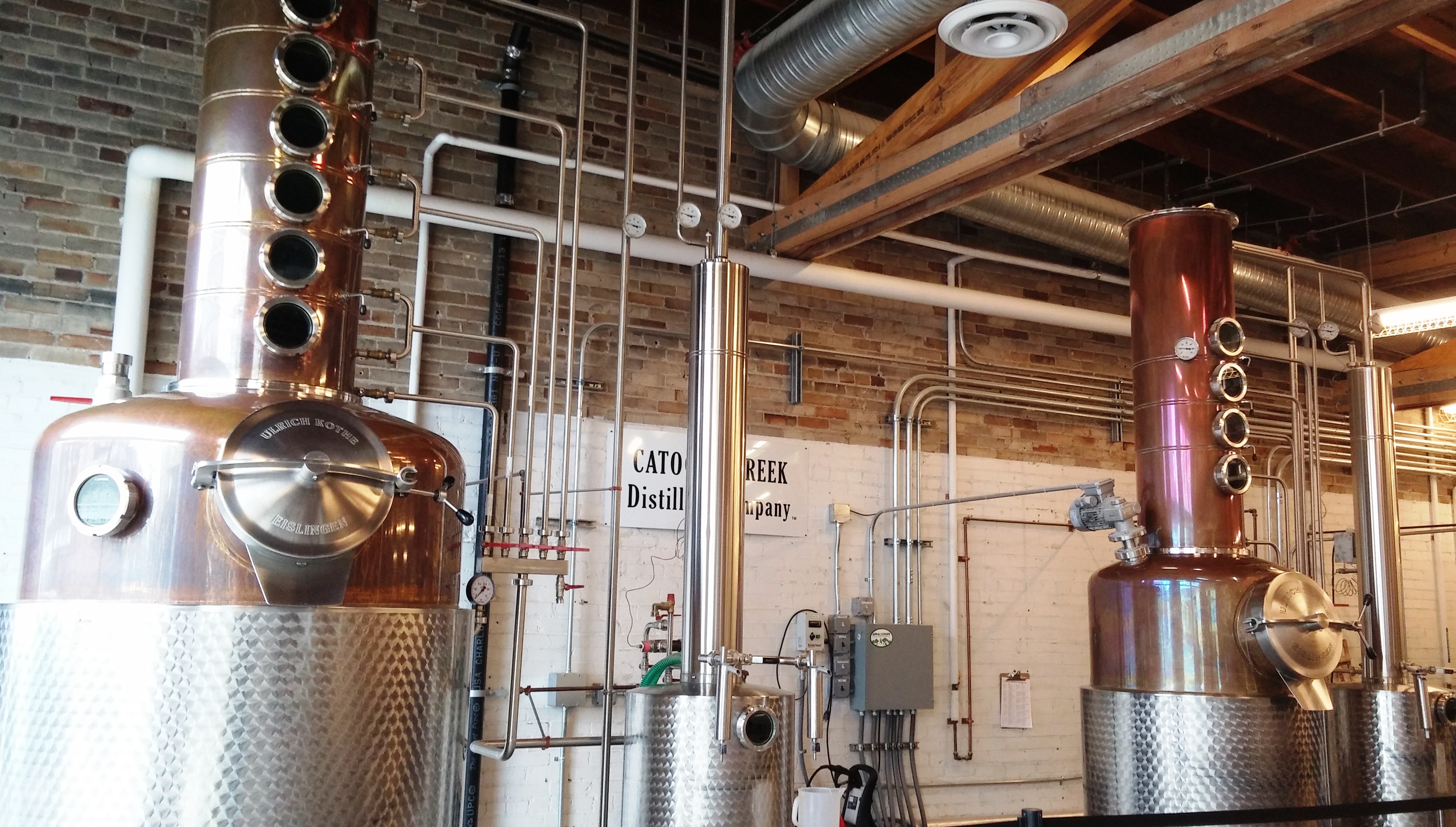Virginia’s Catoctin Creek Distilling announced today that they’ve sold a minority stake in the distillery to Constellation Brands. Catoctin Creek is just the latest domino to fall—and it’s particularly noteworthy news here in the D.C. area—as many of the country’s best and most mature craft whiskey producers continue to be cherry-picked by larger companies and corporations.
That’s not to say it’s a bad thing, it’s simply a sign of the times. It’s also a testament to the success of the brands who’ve been able to sell. In this case, the additional funding will enable Catoctin Creek to invest in expansion, with their official release touting that, “this investment provides the company with new capital to grow production, marketing, and to provide more jobs in Virginia.”
Good news for fans of the whiskey, brandy, and gin, that Catoctin Creek produces is that by selling a minority stake, they’re able to retain their team, as well as production at their current Purcellville location.
Here’s more from the release:
“We created Catoctin Creek to produce award-winning 100% rye single-barrel whisky entirely from grain to glass,” Becky Harris, the president and chief distiller of Catoctin Creek. “In order to expand our production and portfolio, we needed the right partner for the next level of growth. Constellation has a strong commitment to this category, and with their expertise and support, we look forward to bringing our Virginia whisky to the world with the same team and exceptional product quality.”
“As we continue to invest in and explore the high-end craft whisky segment, we are excited to partner with Catoctin Creek – producers of authentic and award-winning products that provide us with deeper knowledge of emerging opportunities,” said Ben Dollard, chief growth officer, Constellation Brands. “Working with passionate entrepreneurs like Becky and Scott Harris allows Constellation Brands to support and accelerate their growth while staying at the forefront of the evolving alcoholic beverage landscape.”
“We are excited about our future in craft spirits,” remarked Scott Harris, founder and general manager of the distillery. “When we started, our core mission was to produce the finest rye whisky possible. Constellation understands that core mission, and shares our business values.”
When pressed for further comment, here’s what Scott Harris said via email:
People will be asking us why we did this deal, and they have to understand how difficult it is for a small company like ours to expand and continue to grow. Access to capital through banks and other means is difficult, and a strong strategic investor brings not only money, but also expertise and connections in the business, which can help us as we navigate towards the future. We want to keep bringing Roundstone Rye and Rabble Rouser to a larger audience in the United States, and Constellation will help us to do that.
All the moving and shaking of the past few months was something I previously discussed on Eater last September, in an article dubbed “Your Favorite Craft Distillery Might Be Going Corporate.” Here’s a short excerpt from that piece:
And while the industry didn’t receive another massive shakeup as was expected after Suntory bought the entire Jim Beam portfolio in 2014, creating Beam Suntory, a trickle could turn into a waterfall at any time.
When this does start to unfold with more frequency, expect a rush to nab the most established craft brands. Does that happen in two years, as Mooney projects? In five years, as craft brands start to flounder, as per Bryson? Farther down the road? It’s too early to call, but once the first pieces get taken off the board, more and more will follow in rapid succession.
Clearly things have been moving even rapidly than was forecasted then. Consider the past few months:
- In October, Utah’s High West Distillery was acquired, also by Constellation Brands.
- In December, Seattle’s Westland Whiskey announced they were acquired by Remy Cointreau.
- Just a week later, West Virginia’s Smooth Ambler sold a majority stake into an investment arm of Pernod Ricard.
Don’t expect this move to be the last, either.



Trackbacks/Pingbacks